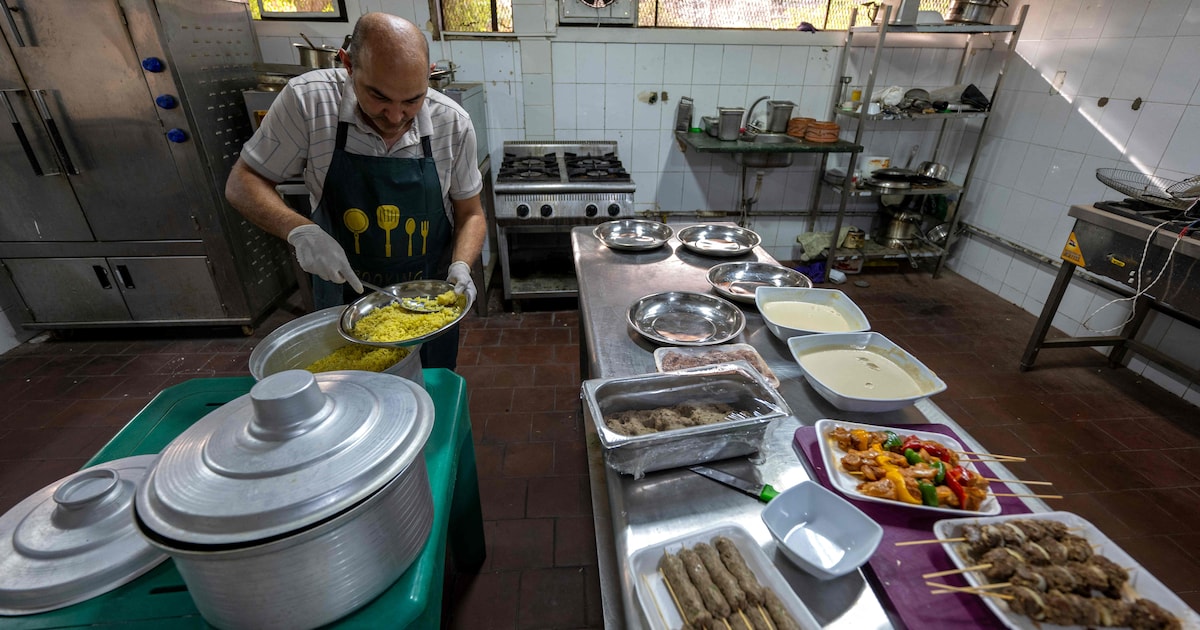
Egypt is allowing Sudanese refugees who have escaped the civil war in their country to return across the border. Amnesty International wrote this in a report published on Wednesday. According to the human rights organization, Sudanese without the correct documentation are being arrested and deported en masse, which Amnesty considers contrary to international law.
The Amnesty report comes three months after the European Union concluded a migration deal worth €7.4 billion in loans and grants with Egypt. This money is intended for border control, but also to accommodate refugees in Egypt.
Ships to Europe
According to the International Organization for Migration (IOM), there are just over 9 million refugees in Egypt, out of a population of 105 million. EU money was also intended for investments in the local economy. The idea was that if refugees can build a life in Egypt, they will not arrive in Europe on boats. They would also have access to public services such as hospitals and schools, just like Egyptians.
Egypt considers refugees as “guests,” Egyptian President Abdelfatah al-Sisi said in March during a visit by outgoing Prime Minister Rutte. “In recent years, Egypt has proven that it is a reliable partner,” Rutte said.
Messages about returns have appeared before. The UN refugee agency (UNHCR) reported that at least three thousand Sudanese had been deported to Sudan in September 2023.
Increase waiting time
A problem for Sudanese refugees is that they cannot apply for asylum in Egypt, but only refugee status with the UN and therefore only a (temporary) residence permit. However, its registration with the United Nations Human Rights Commission can take months.
Sudanese Mohamed also experienced this. “I arrived in Egypt with my family in January, but we were only able to go to the UN in Cairo to apply for refugee status in May. Then we had to wait to receive the correct documents.”
The fact that it is taking so long is due to the numerous wars surrounding Egypt, which has caused refugees from Syria, Eritrea, Yemen and Somalia, among others, to seek refuge in the country. In 2023, 61 percent more refugees than average arrived, including 240 percent from Sudan, reports the children’s rights organization Save the Children. Waiting times are also increasing due to a large round of layoffs at the UN in Egypt and elsewhere due to financial shortages.
Control the blacks
According to Amnesty, arrests and identity checks of black people take place mainly in the capital, Cairo, and in Aswan, near the border with Sudan. “I can’t work and I don’t dare leave the house,” says Mohamed in his small apartment where he lives with his wife and his two children. “What happens if someone asks me for my documents? Then they could arrest me in a moment.”
According to Amnesty, arrested Sudanese end up in filthy detention centers lacking facilities, after which they are handed over to Sudanese authorities at the border. Mohamed is happy to be with him and his family in Egypt, despite the difficulties and risks, such as discrimination based on the color of his skin. “We hear unpleasant comments, but we are safer here than in Sudan. Here we don’t hear gunshots or bombs falling.”
The editors know Mohammed’s full name.
Also read:
Children, doctors and patients: everyone is under fire in Sudan
The risk of a second genocide in Sudan’s Darfur region is increasing, experts say, but another danger may be even more deadly: hunger. 2.5 million people will die in the next three months if things continue like this.

.jpg?w=150&resize=150,150&ssl=1)



